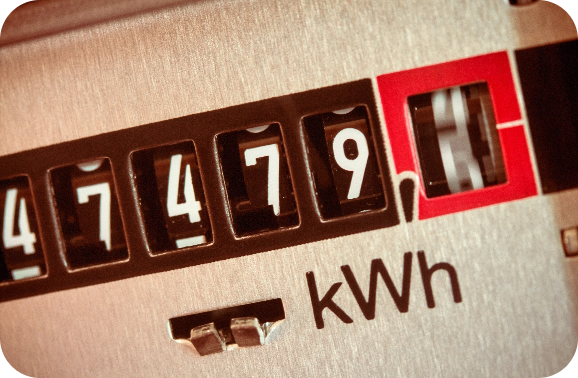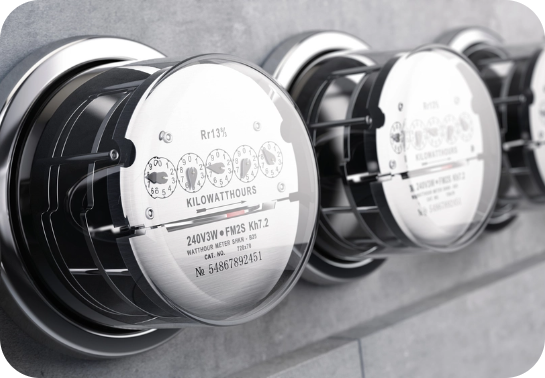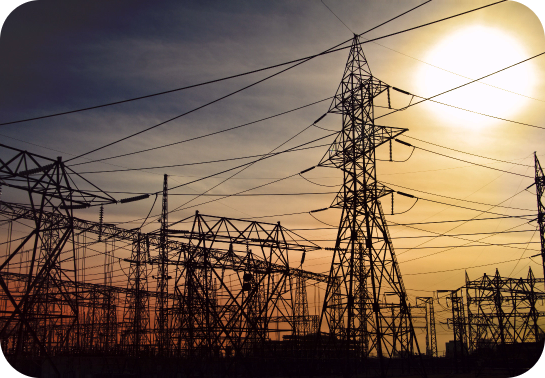What is Net Metering and How Does it Work?

Aside from clean, sustainable energy, one of the major upsides to solar power is the practice of net metering, which can help property owners with solar panels save money on their utility bills. But what is net metering, and how does this energy policy work in real life?
What is Net Metering?
If you’re new to home solar, it’s fair to ask, how does net metering work? Net metering is a billing policy for property owners who use solar panels to receive credits for any excess energy they generate with their panels. Whenever a solar panel user generates more electricity than their home or business can use, the excess will be fed back into the electrical grid.
Solar panel net metering allows these homeowners and businesses to receive a credit on their utility bill for the net total of the extra energy they produce. The solar panel owner can then use that credit to offset the cost of any electricity they need to draw from the grid, which can make it especially useful and cost-effective at times when the solar panels don’t generate as much power as needed, like during the night or when the weather is too cloudy.


Why Does Net Metering Exist?
Net metering was developed as a financial incentive to entice property owners to adopt solar energy. Since net metering reduces the normal financial barriers associated with installing solar panels, more property owners can afford to take advantage of renewable solar energy, which is not only helpful in environmental efforts but also makes solar technology easier for the general public to afford.
Other Types of Net Metering
There are two other basic styles of net metering: “buy all/sell all” and “net billing.”
Buy All/Sell All
“Buy all/sell all” is a net metering method that allows homeowners and businesses to buy any energy they use from the grid and sell all the excess energy they generate to their utility company instead of receiving credits on their utility bill. Buy all/sell all is a good option if you routinely generate more energy from your solar panels than you can reasonably use.
Net Billing
At the end of each billing cycle, net billing policies provide homeowners and businesses with bill credits for any excess energy their solar panels generate. These credits are then applied to the property owner’s next utility bill.
How Do Electricity Bills Work with Net Metering?
Homes and businesses that use net metering solar will have a bi-directional meter that can track energy used from the grid and the energy the property gives back to the grid from their solar system. When the property’s net total energy flow works out to more energy coming from the grid to the property than energy flowing the other way, the property owner’s utility bill will consist of the difference between the two numbers.
However, if the net total energy flow comes out to more energy moving from the property and back into the grid than the other way around, the property owner will receive a bill credit for the difference that can be applied to future utility bills.


What Are the Benefits of Net Metering?
Is net metering worth it? It depends on your needs and location, but where available, net metering can offer a variety of benefits to property owners who have invested in solar power.
Reduce Your Demand on the Grid
When you use net metering solar panels, it reduces the amount you need to rely on the grid’s power. Not only does this reduce your carbon footprint, but it can also help you gain energy independence from traditional energy sources.
Increase Your Control Over Utility Bills
Solar panel owners who produce their own energy have more control over their utility bills. In the long run, this adds up, allowing property owners to save a considerable amount of money on energy costs.
Reduce Your Payback Period
The payback period of solar loans is one barrier that makes many people hesitate to invest in a solar system. However, one of the biggest net metering benefits is that a property owner can reduce the payback period by receiving bill credits that can offset utility costs, which helps make a solar system more financially feasible.
Cons of Net Metering
While net metering has many upsides, there are also a couple of potential drawbacks that property owners should consider.
Requires Connection to the Grid
For one, the ability to net meter requires property owners to have a physical connection to the grid. If the power goes out or the grid experiences other issues, homes and businesses with solar panels might be unable to generate their own energy unless they have a solar battery setup.
Limited Availability
The policies for net metering are inconsistent throughout the US, with some states handling net metering differently from others and some not offering it at all. If you’re considering taking advantage of net metering, you’ll need to pay attention to your state’s particular billing policies.

Does My State Offer Net Metering?
Since net metering policies vary from state to state, we’ve compiled a list of states and US territories that allow solar panel owners to benefit from net metering or other compensation methods like tax incentives.
States that Currently Have Net Metering but Are Transitioning to Other Compensation Methods
States with Compensation Other than Net Metering
States with Compensation Other than Net Metering
Learn More About Net Metering with Axia Solar
Net metering can be a highly beneficial way for property owners to mitigate their utility costs and reduce their overall reliance on the grid. To get started on your own solar energy system, get in contact with Axia Solar today to learn more.